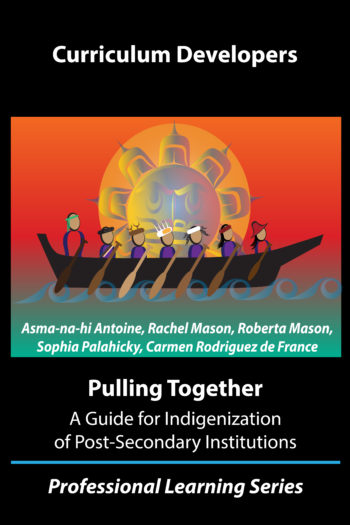Module 3 – Entry 1
Tyler Ohashi
Refining my search to look more closely at Indigenous knowledge systems, specifically how knowledge is created and taught and what type of pedagogies are used, I came across the BC Open Textbook Project. On their website, I found a book called, “Pulling Together: A Guide for Indigenization of Post-Secondary Institutions.”

One chapter, “Indigenous Epistemologies and Pedagogies” stood out to me because it highlights some of the very things I am looking to understand better. This chapter sheds light on key Indigenous epistemologies such as relationality, the interconnection between sacred and secular, and holism. There is also a section on Indigenous pedagogies with information on personal and holistic learning, experiential, place-based learning, intergenerational practices.
I find the information on this website closely related to my revised research question where I will be looking at how to integrate Indigenous ways of learning into Western education in a manner that will benefit all students.
As a final note, I like how this website has some activities with vetted resources to facilitate further investigation. One activity that I see as useful is looking at First Peoples Principles of Learning are used by different Indigenous cultures and how could these principles impact your own curriculum development/lessons.
Reference
Antoine, A.-na-hi, Mason, R., Mason, R., Palahicky, S., & Carmen Rodríguez María del. (2018). Curriculum developers: pulling together: a guide for indigenization of post-secondary institutions. BCcampus, BC Open Textbook Project.